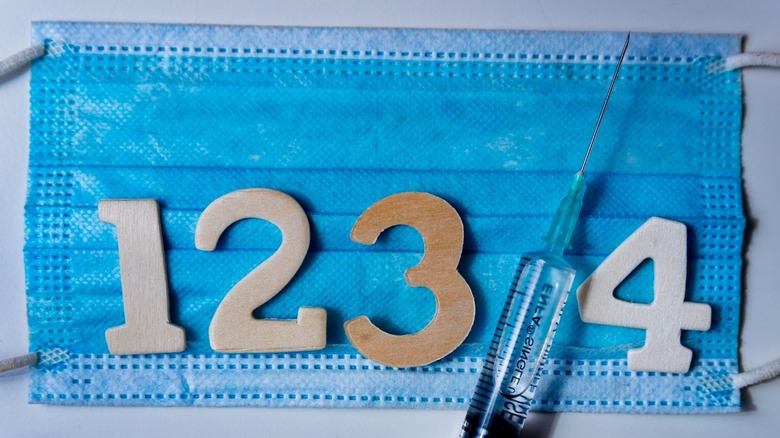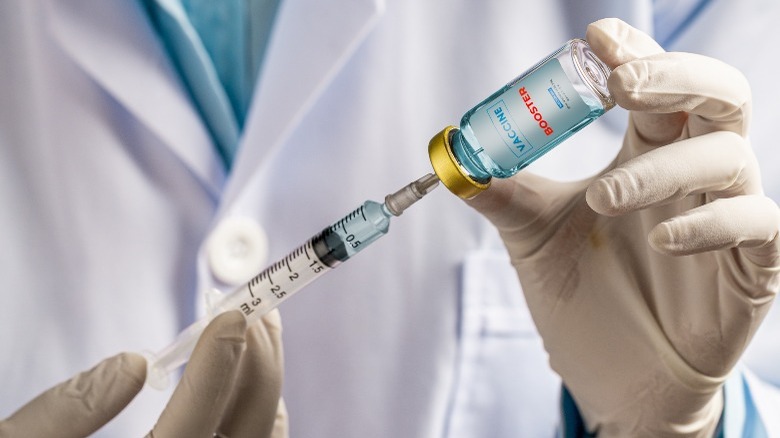Why Officials May Soon Recommend A Fourth Shot To Protect Against COVID-19
While the United States took the position late last year that fourth doses of the COVID-19 vaccine were not yet needed, experts are now looking at the possibility of recommending fourth doses for vulnerable segments of the population. "As more data become available about the safety and effectiveness of COVID-19 vaccines, including the use of a booster dose, we will continue to evaluate the rapidly changing science and keep the public informed," Food and Drug Administration (FDA) spokesperson, Alison Hunt, wrote in a recent email to CNN. "Any determination that additional booster doses are needed will be based on data available to the agency."
Other countries have already begun administering fourth doses. Back in December, Israel began to support fourth doses for those ages 60 and up, along with health workers and the immunocompromised. And health officials in Sweden recently announced that they are now advising those 80 years of age and older to get a second booster shot. The United Kingdom is also following suit, and adults 75 and over, along with those 12 and over with compromised immune systems, will be able to get a second booster shot this spring (via CNN).
Should everyone eventually get a fourth shot?
As of now, data show that antibodies spike following a booster shot but then decline by up to 50% after three months (per NPR). This means that, while the vaccine is a good defense against acute infection, it doesn't protect entirely. Experts state that the results of a recent preliminary study revealed that fourth shots did little to improve immunity compared to three shots and, therefore, not everyone should continue getting booster shots.
"Not a third dose, not a fourth dose, not a fifth dose will do anything to stop infections [long term]," Dr. Gili Regev-Yochay, an infectious disease specialist at Sheba Medical Center in Tel HaShomer, told NPR. However, Dr. Regev-Yochay says that preliminary data show that a fourth shot may offer more protection to the most vulnerable.
The new study observed 400 healthcare workers who received three shots and 300 who received four shots. Researchers compared infection rates between the two groups and reviewed blood samples and antibodies between the third and fourth shots. Results showed that the fourth dose, at most, reduced the risk of infection by 30%. There was also no sign that the fourth dose activated T cells, which act as a key defense against future infections. At best, the fourth dose replenished some of the effectiveness lost in the third dose (via NPR).
NPR reports the FDA is taking a wait-and-see attitude until more complete data emerge about the effectiveness of a fourth shot.


